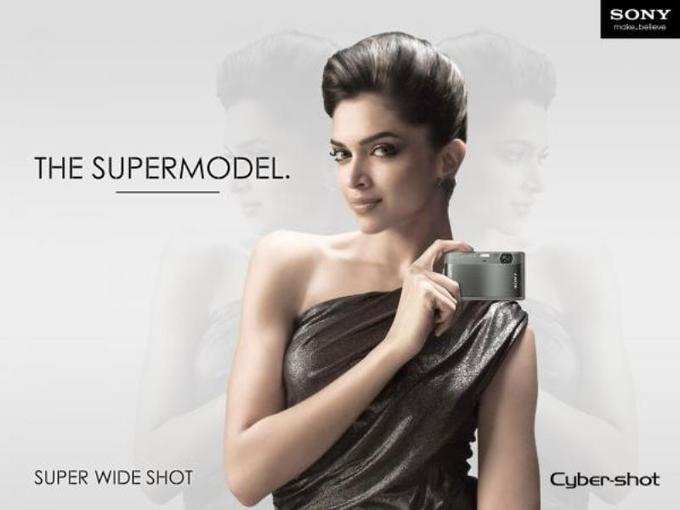 With a full front page Ad in a national daily now we know
With a full front page Ad in a national daily now we know Celebrities are most used often in the B to C markets, to aid marketing appeals directed at end consumers. The latest celebrity associations doing the rounds include
So here’s what they can do, and what they can’t.
There are reasons why celebrities matter to brands and consumers. Much of that has to do with their ability to break through a cluttered noisy market place and connect to consumers. Here are the three ways they do it -
- Entice Attention – Consumers of today live amidst an overload of marketing messages. That is, too many communiques from as many marketers vie for consumer attention. Over time however and through conscious and subconscious acts, consumers both block and ignore marketing stimuli. Now here’s where celebrities swing into action. Using equity that revolves around characteristics of credibility (Aamir Khan with his thinking man’s
actor image), attractiveness (Deepika Padukone totally on her drop-dead gorgeous looks), or power (Amitabh Bachchan by the sheer sense of respect he evokes), celebrities snare the senses and pluck consumer attention.
- Provoke Consideration – What celebrities also do once the attention is in, is to get consumers to contemplate on the content of the message. Such contemplation is also aided by
the choice of the celebrity. So an Aamir can prompt consumers to ‘internalize’ and ‘believe’ the message. A Deepika may provoke the viewer to ‘identify’ and therefore ‘associate’ with the brand, and the big Daddy ofBollywood , Amitabh may be able to get the target group to ‘act’ via ‘compliance’ to whatever is being is suggested of consumers.
- Forge Inclination – In behavioural lingo, ‘consideration’ is in effect consumers learning about the celebrity-endorsed brands. Such celebrity associated ‘stimulus-response learning’ in turn results in attitudes being formed. Meaning consumers now begin to ‘like’ the brand in question. So a
Nescafe coffee in a bright red cup in the perfectly manicured hands of Deepika turns into more than just coffee. It transforms into a brew that provokes a ‘regular guy’ to ‘switch on the best in him’ and land a date with a drop-dead gorgeous lady.
- Influence Preference – Though Deepika may have done the job in getting a target group to like Nescafe, thus getting the brand into their ‘consideration set’, there’s no guarantee young coffee drinkers will pick it over other competing brands. That’s because taste, price, packaging, merchandising, other such variables will override celebrity associations to become the critical issues of consideration before a purchase decision.
- Dictate Conviction – For a final purchase, brands must compellingly convince consumers they are the best among the rest. So a Snapdeal with Aamir will hold no relevance to an online retail buyer. Neither will a Dhoni or a Kohli in the sneaker category. What will now matter is available
feedback and other information on performance from non-marketing sources. So for example, reviews on delivery, service, product quality, exchanges, and cancellations by other online buyers will dictate if an online retailer’s services are patronized. The celebrities would by now have vanished into the woodwork.
It’s important to note celebrities are akin to the ‘nimbu-mirchi’ in the Irfaan Khan-Ceat SUV Tyres Ad. The lemon-chilli fruit combination may help you feel good in the saddle (read, get consumers to like your brand) , but in the end it’s your astute driving and braking on top quality tires (read, superior brand value proposition) that will save you (read, get the brand consumer patronage).
(
